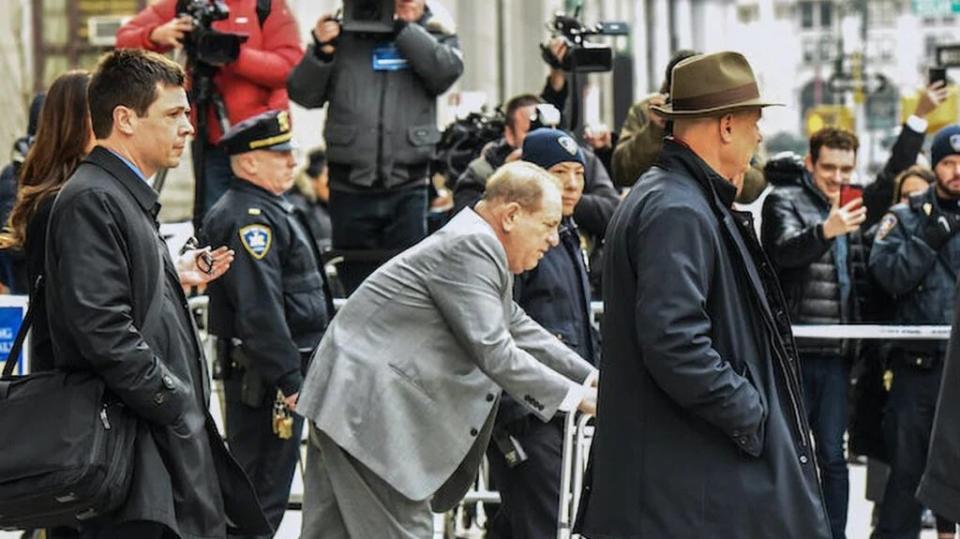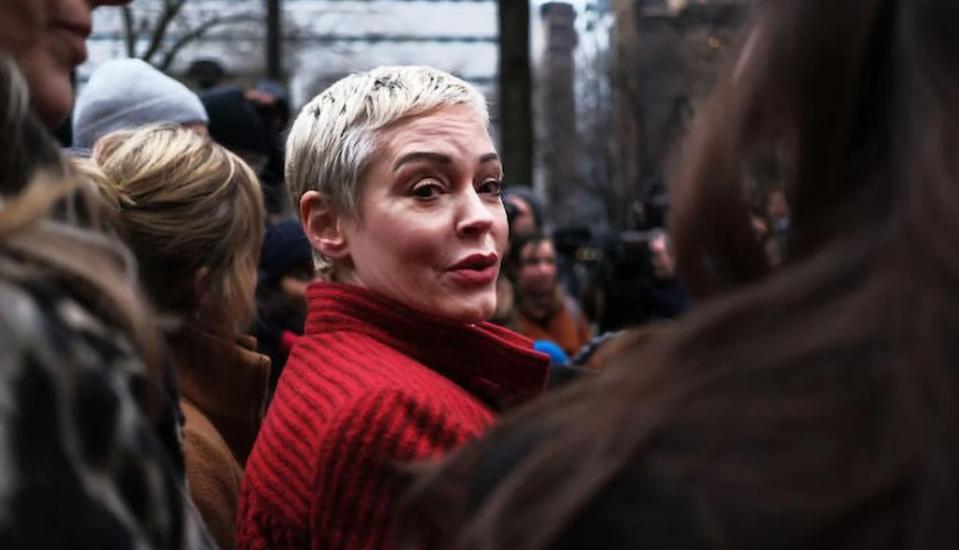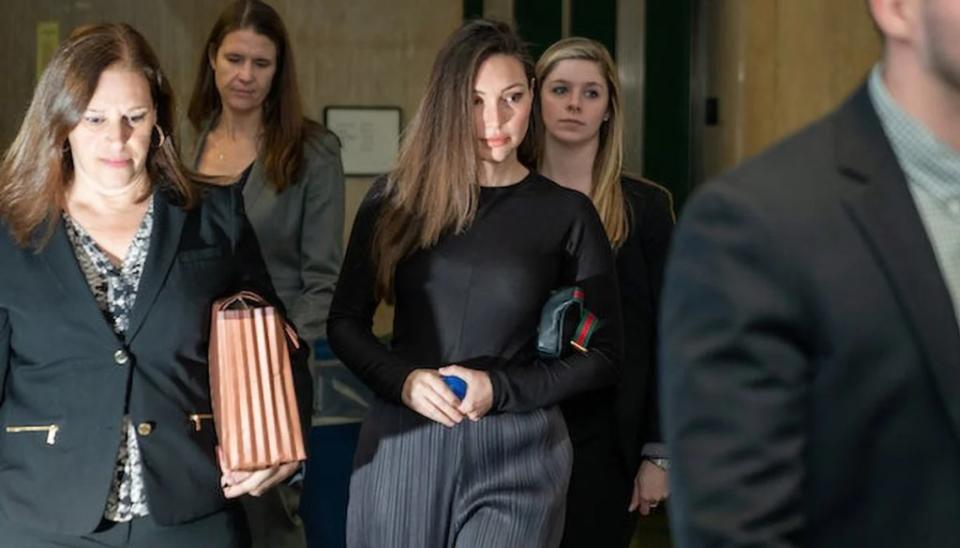Weinstein Reversal May Make It Harder for Other #MeToo Convictions, but It Won’t Affect California | Analysis
- Oops!Something went wrong.Please try again later.
The Harvey Weinstein conviction reversal on Thursday may affect future #MeToo cases in New York, but it probably won’t upset the former movie mogul’s conviction in California, legal experts told TheWrap.
Four out of seven New York State Court of Appeals judges voted on Thursday to overturn Weinstein’s 2020 convictions on the rape of an actress in 2013 and criminal sexual behavior against a production assistant in 2006, based on the inclusion of what are called Molineux witnesses — alleged victims who testified against Weinstein despite their cases not being included in his trial.
This means that future #MeToo cases are unlikely to use witnesses who establish the context of prior alleged bad acts in cases of sexual misconduct.
“If juries are not allowed to hear from other survivors who were subjected to the same patterns of conduct, convictions may be much harder to obtain,” said Nicole Page, partner at Reavis Page Jump LLP. “The Court decided that their testimony about Weinstein’s prior sexual assaults was prejudicial and should not have been admitted at trial.”
The reversal doesn’t determine Weinstein’s innocence or guilt, said attorney Douglas H. Wigdor, who represented 10 alleged victims of sexual abuse by Weinstein, including two women who testified at his criminal rape trial in New York. “It really is just about whether he, in the majority opinion, had a fair trial.”
The Appeals court decision in New York probably will not affect Weinstein’s December 2022 conviction in Los Angeles because California doesn’t have the same restrictions on Molineux witnesses, he and other attorneys told TheWrap.
“New York’s a bit of an anomaly,” said Wigdor. “California and the federal rule have it right…. that testimony of other victims should be admitted at the discretion of the court because the issue of intent is one that’s so difficult to prove in a he-said/she-said situation, where there are no other witnesses.”
Still, after the New York reversal Weinstein and his attorneys are expected to make similar arguments in California about the admissibility of testimony from other alleged victims.
“They’ll have to find a judge who buys it,” said Lisa Banks, a founding partner at Katz Banks Kumin LLP who concentrates her practice on sexual harassment and whistleblower retaliation. “The dissents [in the New York case] show that there are a number of judges who totally understand the nuance and the difficulties when you’re dealing with sexual assault cases, particularly among people who know each other.”
Wigdor explained that the nuance comes down to the legal difference between “intent” and “predisposition.” The appeals court ruled that the conviction was improper because it was going to show his predisposition to commit these crimes, not show his intent.


New York State Court of Appeals Judge Madeline Singas, in a scathing dissent to the full court’s decision on Thursday, argued that it failed to understand the nuances of the sexual assault case. Ignoring Weinstein’s previous sexual assault violations “deprives juries of the context necessary to do their work… and demonstrates the majority’s utter lack of understanding of the dynamics of sexual assault,” she wrote.
“New York’s women,” Singas wrote, “deserve better.”
Page agreed that this kind of legal hairsplitting can make or break litigation against a sexual abuser. “Women have a hard enough time being believed and juries may struggle to understand the nuances around manipulation and lack of consent that are omnipresent in these types of cases,” she told TheWrap. “If juries are not allowed to hear from other survivors who were subjected to the same patterns of conduct, convictions may be much harder to obtain.”

Weinstein could be re-tried in New York
Will Weinstein get a new trial?
“We will do everything in our power to retry this case and remain steadfast in our commitment to survivors of sexual assault,” a spokesperson for Manhattan District Attorney Alvin Bragg said on Thursday.
In the February 2020 New York conviction, a jury found Weinstein, now 72, guilty of third-degree rape of actress Jessica Mann in 2013 and a criminal sexual act against actress Miriam Haley in 2006. He was sentenced to 23 years in prison. Then in 2022, a Los Angeles jury found him of guilty of rape and sexual assault and he was sentenced to an additional 16 years on top of his 23-year New York sentence.
Despite Thursday’s appeals court reversal, Weinstein remains incarcerated at Mohawk Correction Facility in Rome, New York.
If juries are not allowed to hear from other survivors who were subjected to the same patterns of conduct, convictions may be much harder to obtain.”
Nicole Page, a partner at Reavis Page Jump LLP
Wigdor considered the 2020 verdict “a great moment, frankly, where someone was held accountable for his actions.” And today’s ruling caught Banks, who represented Christine Blasey Ford in her allegations of sexual assault against Brett Kavanaugh during his Supreme Court confirmation hearings, by surprise.
However, Ann Olivarius, whose transatlantic law firm handles civil litigation as well as sexual harassment, assault and abuse, told TheWrap she had expected the conviction to be overturned. “The judge made a mistake, you go back into court, you retry, that’s life,” said Olivarius.
“[This] doesn’t mean that Harvey Weinstein is an innocent man,” added Wigdor. “To the contrary. The District Attorney can now retry the case and he’s already said that he will. So I expect that criminal trial will happen and ultimately, Harvey Weinstein will be held again accountable for his actions.”
In Thursday’s ruling, the Appeals court found that the trial judge in the original case “erroneously admitted testimony of uncharged, alleged prior sexual acts,” allowing information to be presented that prejudiced the jury. Judge Jenny Rivera, writing the majority opinion, said that “the accused has a right to be held account only for the crime charged, and thus, allegations of prior bad acts may not be admitted against them for the sole purpose of establishing their propensity for criminality.”
The court ruled that evidence admitted into the court regarding Weinstein’s prior alleged sexual assault violations was an “abuse of judicial discretion,” which could have been used by the jurors to “impeach the accused’s credibility.” Rivera described it as “nothing more than bad behavior that destroys a defendant’s character but sheds no light on their credibility as related to the criminal charges.”
Olivarius asked if the system should be changed to make it easier for women to bring claims and for perpetrators to be found guilty. “Maybe you should put in [the accused’s] past behaviors,” she said. “We should think about changing those rules. But as it stands now, the judge was wrong, and they just have to do a retrial.”
Wigdor agreed, adding, “In New York the law is dated and ought to be changed. It was still relevant not to show propensity, but to show Weinstein’s intent. Courts routinely do admit this even in New York.”
“What happened today was obviously devastating and unfortunate, and I think wrong. But I think it’s a minor setback for now,” said Banks. “The appellate court got this one wrong, and I don’t think it’s going to result in Harvey Weinstein walking free and I don’t think it’s going to set back the #MeToo movement.”
A previous version of this story misidentified attorney Nicole Page as Lisa Page. TheWrap regrets the error.
The post Weinstein Reversal May Make It Harder for Other #MeToo Convictions, but It Won’t Affect California | Analysis appeared first on TheWrap.

